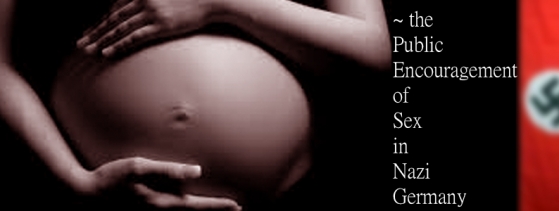H.R. Knickerbocker (1898 – 1949), foreign correspondent for the Hearst papers, recalled a 1938 conversation he had with the noted Swiss psychiatrist Carl Jung concerning Adolf Hitler and his broad appeal among the German people:
"He is like a man who listens intently to a stream of suggestions in a whispered voice from a mysterious source, and then acts upon them... In our case, even if occasionally our unconscious does reach us in dreams, we have too much rationality to obey it - but Hitler listens and obeys."
Click here to read about the origins of Fascist thought...
Click here to read Dr. Jung's thoughts on the collective guilt of the Germans. For the sixth time in his life, Ken Magazine's far-flung correspondent, W. Burkhardt, found himself cast in the roll as guest of the deposed king of Germany, Kaiser Wilhelm II (1859 - 1941). After exchanging pleasantries, their conversation turned to weightier topics, such as contemporary German politics and it was at that time that Ken's man in Doorn recognized his moment:
"Suddenly, sensing a chance I may never have again, I pose the question":
"And yourself, Sire, what do you think of him?"
"Nichts!"
Click here to read about the fall of Paris...
German millionaire industrialist Fritz Thyssen (1873 – 1951) paid the way for the Nazi party from its earliest days all the way up to Hitler's place in the sun. When Hitler attacked Poland, Thyssen bailed. In this column he confesses all:
"I met Hitler for the first time in 1923... Ludendorf arranged my first meeting with Hitler at the home of a mutual friend. What a different character Hitler was then! He was deferential and anxious to learn. You may not believe me, but he had a sense of humor, actually telling many jokes... Hitler as a speaker was amazing. I asked him how he achieved such success addressing people. He said, 'I don't know, but after ten minutes, like a band leader, I usually make contact with the crowd, and then everything is all right.'"  |
Dr. Eduard Bloch (1872 – 1945) was the Austrian physician who treated the family Hitler throughout the 1880's up until 1908. He knew the future tyrant well. Oddly, the doctor seems quite sympathetic toward Hitler - he couldn't have known that his patient would become one of the greatest monsters of the Twentieth Century, but he had read Hitler's book and knew what he was capable of.
"What kind of boy was Adolf Hitler? Many biographers have put him down as harsh-voiced, defiant, untidy; as a young ruffian who personified all that is unattractive. This simply is not true. As a youth he was quiet, well-mannered and neatly dressed." This article was written shortly after the French occupation of the Ruhr and at a time when Adolf Hitler did not have much of a following -he was something of a curiosity to the Western press:
"A principal reason why Hitler's followers have begun to doubt him, it appears, is that the 'dreaded gathering' of the National Socialists in Munich came and went without 'accomplishment.'"
Read about the earliest post-war sightings of Hitler: 1945-1955
A column that explains Hitler's alliance with General Erich von Ludendorff (1865 - 1937) during the famous Beer Hall Putsch (1923) and how it all went south from there. |